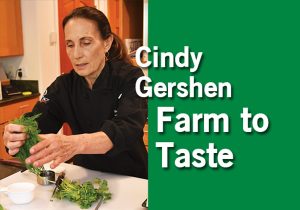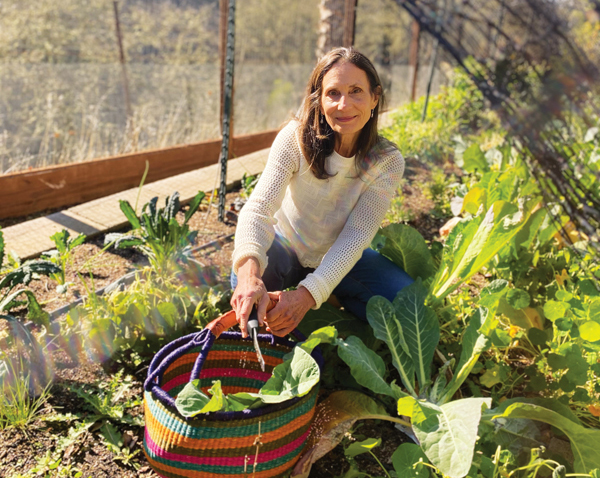Honor the soil through regenerative farming
 CONTRA COSTA COUNTY, CA (Mar. 15, 2024) — The soil nurtures a solution for the crisis of global warming – and for the goal of healthy eating.
CONTRA COSTA COUNTY, CA (Mar. 15, 2024) — The soil nurtures a solution for the crisis of global warming – and for the goal of healthy eating.
Regenerative farming is a worldwide movement to convince more farmers to break the cycle of “modern” agriculture and use methods that regenerate carbon in the soil.
It’s a holistic approach utilizing bio-sequestration farming to capture greenhouse gases from the atmosphere and store carbon in the soil. The idea is to repair the damage we’ve done to the soil.
Regenerative farming seeks to maximize absorption of carbon from the atmosphere into plants’ root systems and the soil. The techniques include rotating and diversifying crops, halting pesticide use, limiting grazing and, most profoundly, not tilling the soil.
Widespread tilling has been the rule for more than a century, with the result of massive erosion of topsoil. The consequence has been environmental disasters such as the Dust Bowl in the Great Plains in the 1930s or the global warming that has seized attention worldwide in the last generation.
No-till agriculture

The primary technique, whether in your backyard garden or on a large commercial farm, is no-till agriculture. Tilling is the worst thing you can do to soil. It tears up the root systems and disrupts microscopic bugs and worms that feed on plant debris, interferes with aeration and degrades the quality of the soil.
You get your vitamins, nutrients and minerals from the soil. They are drawn up into plants that we eat and the animals who eat those plants, whose meat is part of our diet.
Bethallyn Black, a professor of horticulture at Diablo Valley College, will talk about regenerative gardens and farming on Saturday, April 27. It’s part of an event with food, drinks and live music from 3-7 p.m. at the AgLantis farm in Martinez.
Forty percent of the carbon a typical tree takes in through sequestration of carbon dioxide from the atmosphere goes to the roots, according to scientists cited in the documentary “Kiss the Ground.” A new documentary, “Common Ground,” looks at regenerative agriculture and the influence of pesticide companies that contribute to research universities.
You can improve the soil of your home garden by adding compost. Locally, trash hauler Republic Services teams with RecycleSmart to offer residents giveaways of compost in the spring. There will be a compost giveaway in Walnut Creek on Saturday, April 27; sign up at recyclesmart.org/icaw. On Saturday, May 4, there will be a compost giveaway at Our Savior’s Lutheran Church, 1035 Carol Lane, Lafayette. The local efforts complement worldwide initiatives to seize the opportunity of regenerative agriculture to save the soil.
Here’s a recipe with farm-fresh vegetables.
Nana’s Italian Vegetable Stew
6 servings
Note: Be sure to wash all vegetables before using.
8 oz. potatoes, unpeeled and diced into 1-inch pieces
1 lb. cauliflower, chopped into 2-inch pieces
8 oz. broccoli, chopped into 2-inch pieces
8 oz. fresh green beans, or frozen if out of season
8 oz. zucchini or yellow squash, chopped into 2-inch pieces
8 oz. chard, chopped
8 oz. kale, stemmed and chopped
1 T garlic or shallots, peeled and chopped
¼ c. avocado oil
4 oz. Parmesan cheese, shaved or grated
Add about 3 inches of water to a large stockpot. Layer in cubed potatoes. The liquid should just reach the top of the potatoes. In layers, add cauliflower, then broccoli, then green beans, then zucchini. Add chard and kale.
Bring everything to a boil over medium heat, then reduce to low and simmer 10 minutes.
Use a long knife or a skewer to test the potatoes. When the metal glides softly into the potatoes, they’re done.
Pour the water and veggies into a strainer, then return vegetables to the pot.
In a medium pan, sauté the garlic/shallots in avocado oil for about 1 minute, adding extra oil if necessary. Add to the vegetable mixture, along with Parmesan cheese, and stir well.
Send your questions and comments to cindymgershen@gmail.com.

Cindy Gershen
Cindy Gershen is an educator, nutritionist, chef, and co-author of “Fat Chance Cookbook.”
